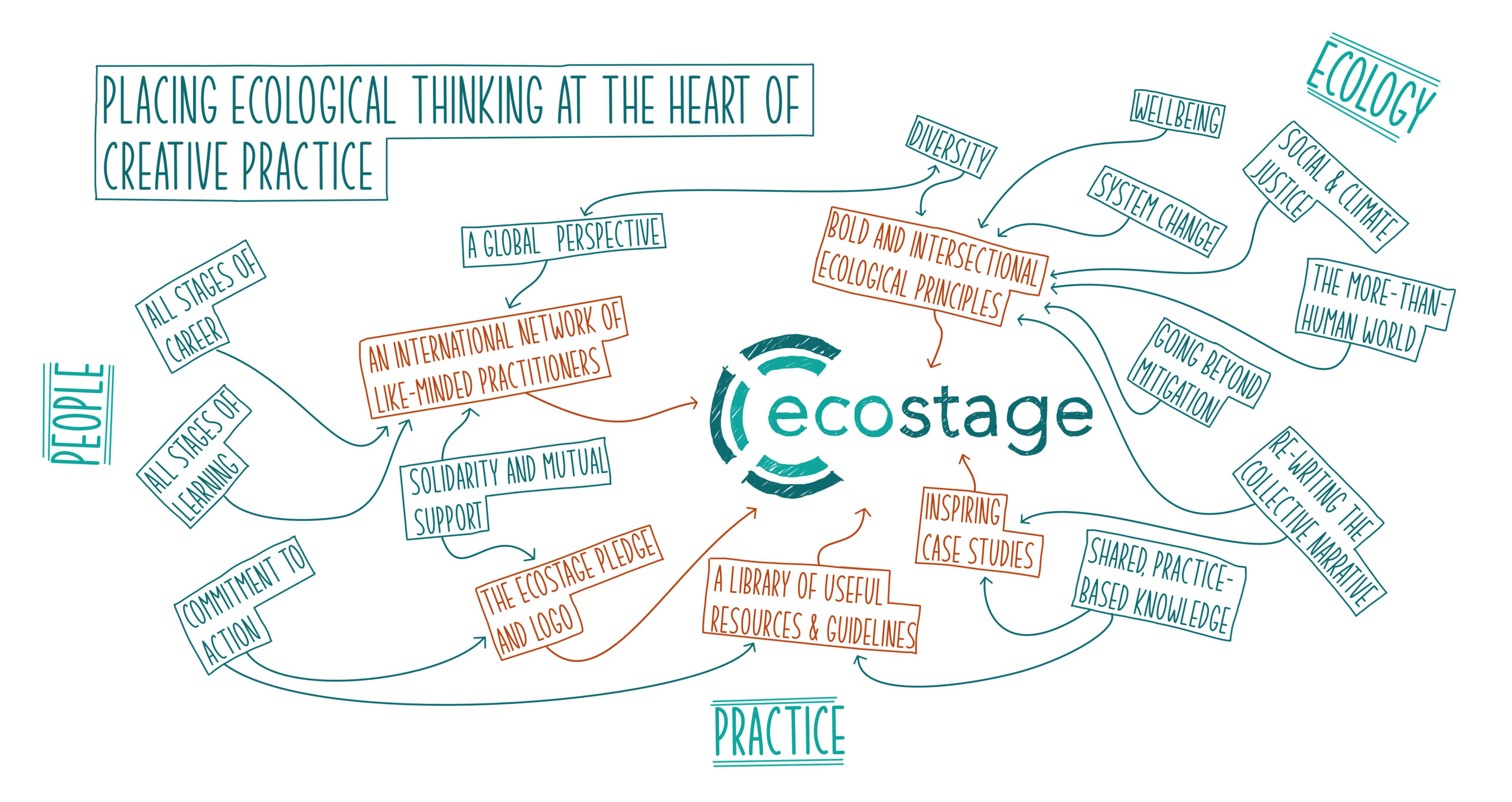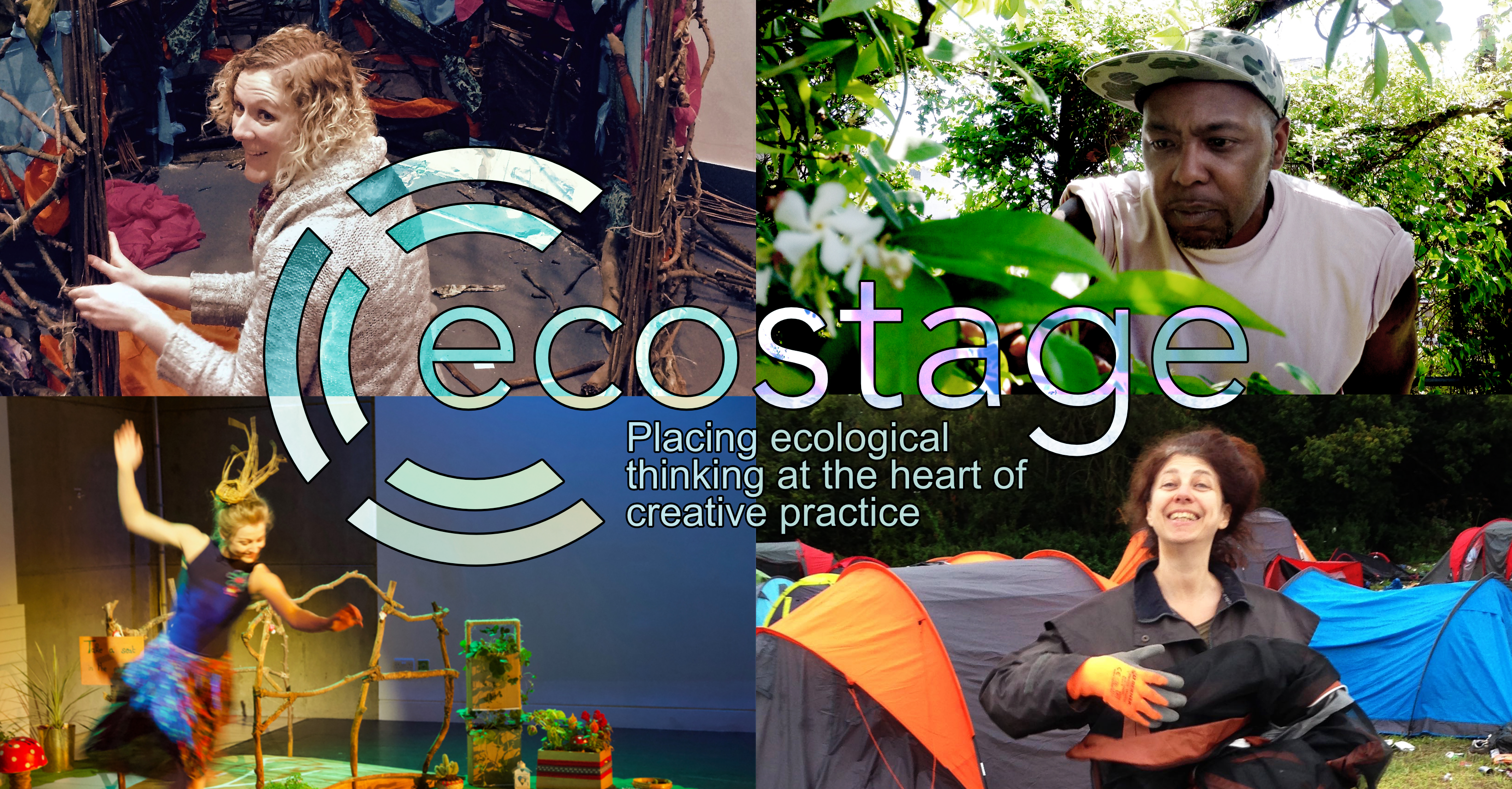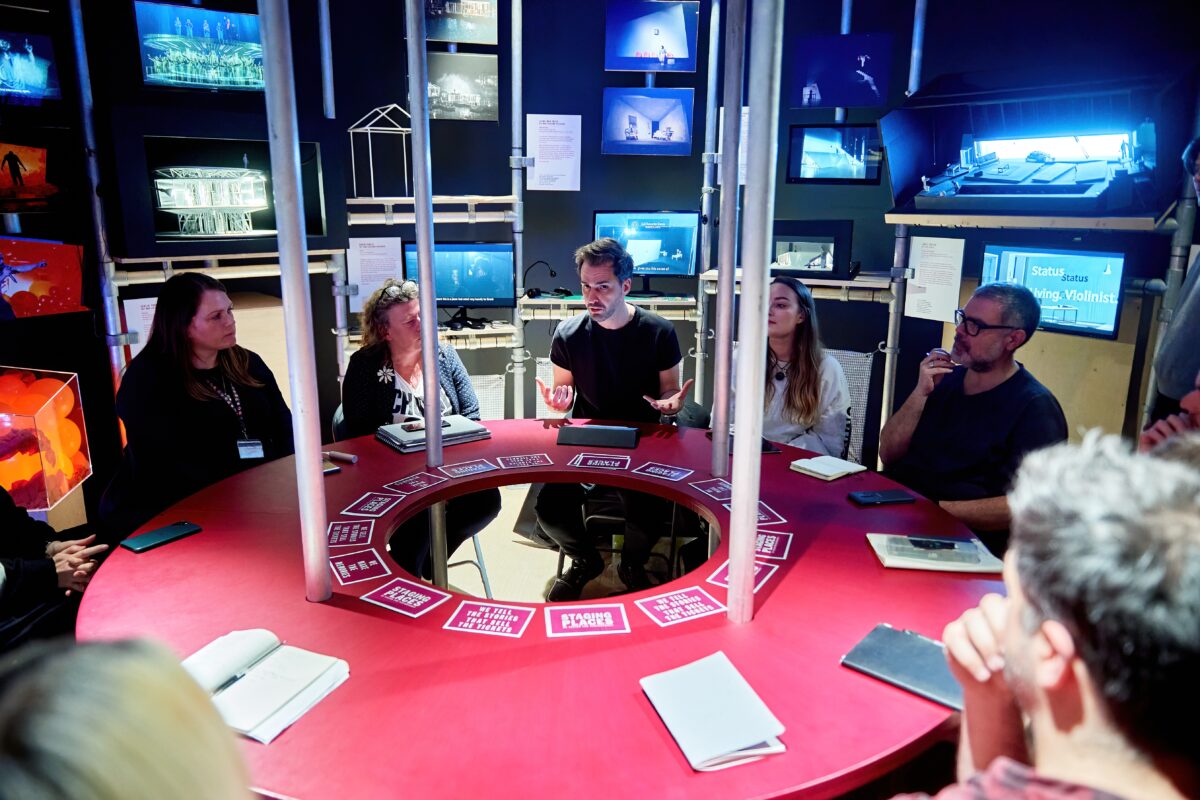Ecostage: Designers Turning the Performing Arts Green
Image Credit: Andrea Carr.
Ecostage: Designers Turning the Performing Arts Green
by Paul Burgess
I think most of us here would agree that theatre designers can provide unique ways of looking at the world. We have to understand the big picture while paying attention to the tiniest details. We have to envision what we do simultaneously through the lenses of personal artistic expression, collective artistic vision, technical possibility, availability and cost. We have to be good at being part of the pack and at being lone wolves. We spend our lives making words and ideas into tangible things, and then, as well as knowing how those things work and what they do, we have to untangle how they might be read as signs and symbols.
So it’s no surprise that one of the more ambitious sustainability projects in the performing arts sector – a project which digs right down to fundamental ecological principles in order to provide practical solutions – is led by designers.
What’s the big idea?
Ecostage was launched in 2015 under the name Ecostage Pledge by three eco-scenographers: Tanja Beer, Andrea Carr and Alice Hoult. The initial focus, as the name suggests, was on pledging to a set of ecological principles. The idea was that once you’d pledged you could download a logo which you could use on your email footer, website and so on, to show your commitment. This focus on commitment, as opposed to ticking off achievements, was a wise approach. Something based on achievements, such as all your productions being carbon-neutral, would not only scare people off, it would be impossible to monitor. As a result, the pledge would become meaningless. Also, by going back to fundamentals, designers and others in the sector are empowered to find their own ways to enact these principles through their work. This is surely preferable. After all, we are creative thinkers and problem solvers, not followers of instructions!
Another crucial factor is that people can sign up regardless of what point they’re at in their journey towards a more sustainable practice. We must never be an exclusive club of saviours, imparting our wisdom to the benighted masses. To be honest, if we’re looking at things that way then I’m one of the benighted masses myself. I’m at quite an early stage in my journey towards being able to call myself an eco-designer. In spite of working as a theatre designer for many years, and being involved in environmental activism for even longer, I’m still working out how to satisfactorily reconcile the two. The main reason I’m involved with Ecostage, and a member of the SBTD’s Sustainable Design Group, is to find answers.
Another reason to make this initiative open to anyone prepared to commit to its ideals is that we need the power of collectivity. It’s very difficult to be the person in a production meeting who says ‘No, we can’t do that’ if you’re on your own. But if you know that other designers are doing it in other production meetings all around the world, from student venues to national theatres, it gets much easier.

Where are we now?
Back in 2015 the Ecostage project was initially met with a lot of enthusiasm and support from across the industry. It was, however, hampered by technical issues with the website and started to lose some momentum. Then, at the SBTD’s roundtable on sustainability, organised earlier this year as part of the Staging Places exhibition, Andrea made a very strong case for relaunching the Ecostage project with a new website and updated principles. Mona Kastell, Ruth Stringer and I joined her to form a new team which, although it has the full support of the SBTD Sustainable Design Group, is entirely autonomous. Ecostage is intended for everyone in the performing arts sector, not just designers, and not just UK-based practitioners, so it’s important not to be affiliated with one area of practice.
We have been working to renew the principles and develop a website concept that encourages pledgers to be part of a network, so they can support each other and share their experiences, particularly through case studies. We’ve more recently been joined by Hannah Myers and Michaela Field, to help us crowdfund the new site. This is to pay for a website builder, hosting and other related costs. (All of us are working on a purely voluntary basis, I should add.) We hope to get the website built in the autumn: we’ll start as soon the crowdfunder has ended.
The pledges themselves are, we believe, absolutely right for these complex and troubling times. They place concerns about the environment within a broader ethical context, reflecting the fact that social and environmental justice are profoundly and inextricably connected, and that our current economic and political systems are themselves driving the climate emergency. So our principles encompass commitments to diversity, confronting privilege etc, alongside things like reducing carbon footprints and waste. We’ve been working hard to update the 2015 versions, and we’ll be getting them peer-reviewed soon by colleagues from around the world.
How can I get involved?
Well, I’m glad you asked! You can read more about the Ecostage project on the crowdfunding page. There’s a holding page for our website where you can download a copy of our press release, and you can find us on Instagram, Facebook and Twitter. I hope lots of SBTD members will be keen to pledge to the principles once the new website is up and running. In the meantime, do please donate if you can. If every SBTD member gave £10, that would be the website build covered. If you can’t, please help us spread the word. This is not an idle plea: we’ve only recently started building up a social media presence and we really do need help from all our colleagues in this amazing community to provide Ecostage with the reach it surely deserves. Thank you!

Paul Burgess is a set, costume and video designer. His practice has taken him from Shakespeare’s Globe to Hanoi, Islamabad, New York, and a disused nuclear bunker in Siberia. He regularly designs for Deafinitely Theatre and is a mentor on Deafinitely’s HUB scheme for young deaf creatives. He’s a member of the SBTD Committee and Sustainable Design Group, has taught at various universities, and is artistic director of Daedalus Theatre Company. www.paul-burgess.co.uk
